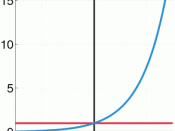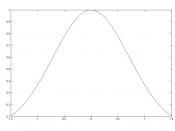Homework 2
How good is the Exponential Function Discounting Formula? An Experimental Study.
We studies in financial economics and behavioral finance always attempt to explain various anomalies documented in the empirical literature. Recently, Loewenstein and O'Donoghue extensive review study of time discounting, they conclude the discount utility model have little empirical support. One of the anomalies, they note, is the declining-discount-rates result established in the economic psychology literature, and often referred to as hyperbolic time discounting.
In a recent survey of investor psychology and asset pricing, experimental studies of inter-temporal choice derive subjective discount rates by applying the exponential function to the sum of money in the subjects' benefit-cost responses. However, studies in psychology question the ability of subjects to evaluate the exponential function correctly. One such anomaly reported in the experimental literature is the negative relationship between the time and the sum of the cash flow and the derived (implicit) subjective discount rates.
This is anomalous because the impact of these two factors, time and sum, on actual capital market interest rates is generally positive.
The purpose for the present study therefore is threefold: (1) to estimate the degree of the EF misevaluation and its variation with a given product price level and its expected growth rate; 2) to examine whether such other mathematical functions as linear, quadratic and cubic functions, conform to the discounting and compounding process of individual decision makers; and (3) to investigate the impact of personal characteristics.
Finally, regression results demonstrate no statistically significant correlation between the exponential function (EF) subjective misevaluation coefficient and such personal characteristics, as sex, age, having a savings account and investing in capital market securities. This result implies that the EF misevaluation is robust; personal differences are of no significant consequence.



![function Exp[z] in the complex plane](https://s.writework.com/uploads/6/60272/function-exp-z-complex-plane-thumb.jpg)

